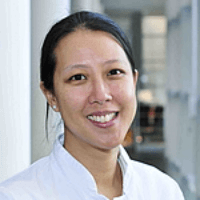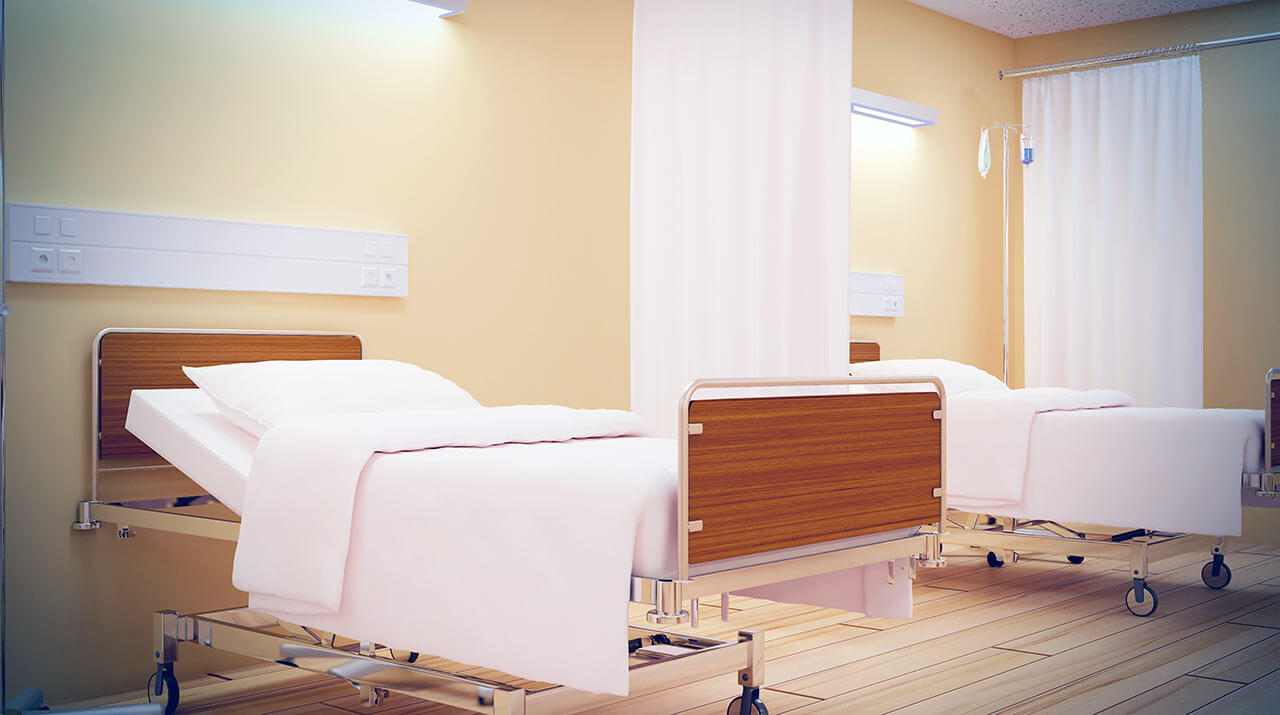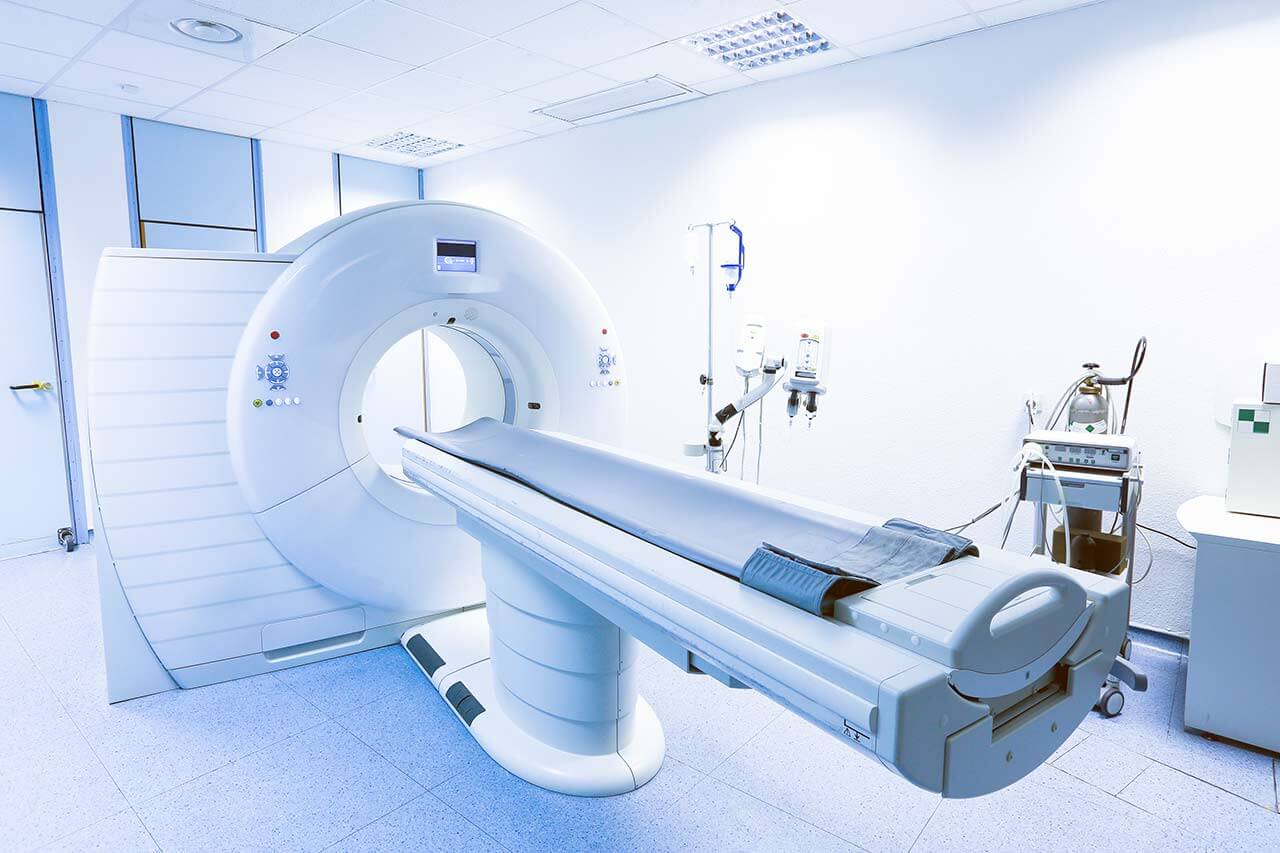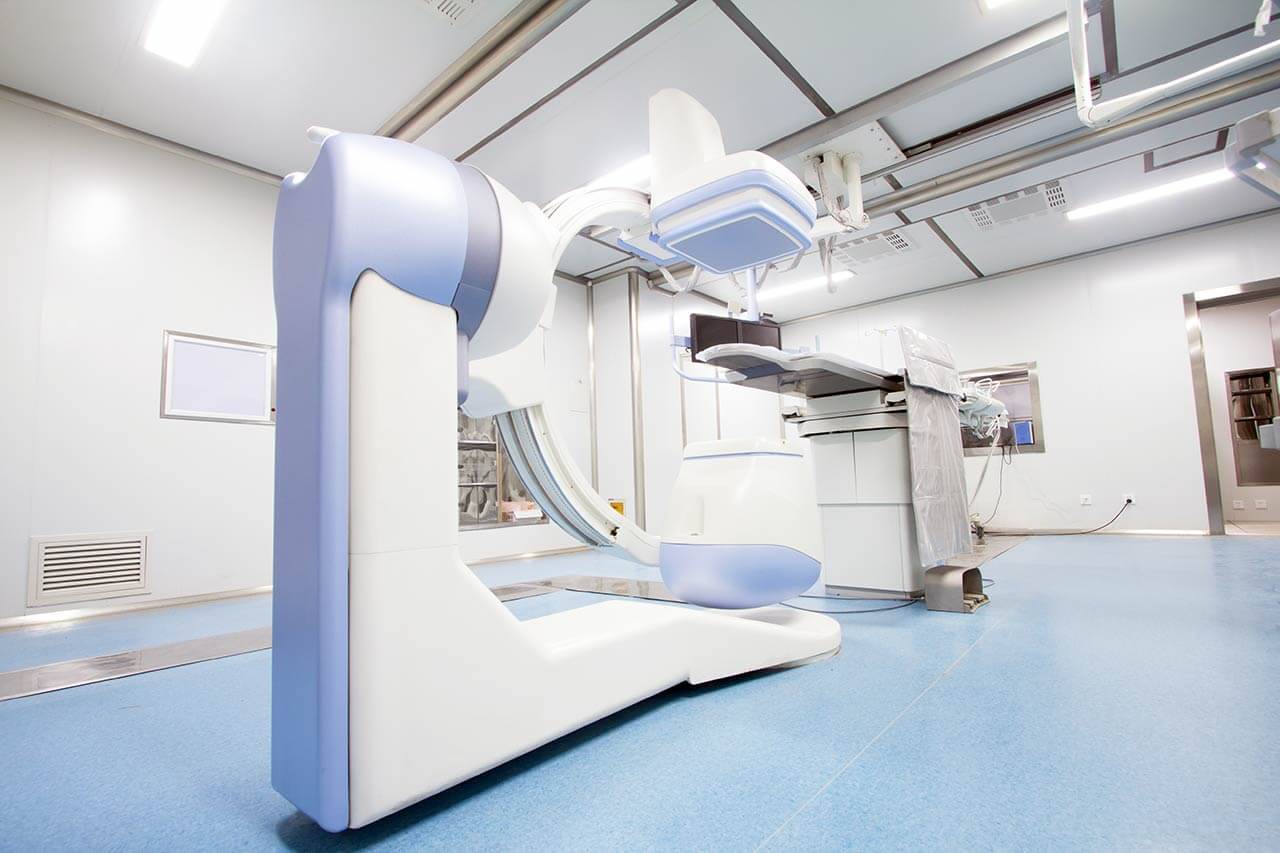
The program includes:
- Initial presentation in the clinic
- clinical history taking
- physical examination
- general otolaryngological examination
- review of medical records
- laboratory tests:
- complete blood count
- biochemical analysis of blood
- indicators of inflammation
- indicators blood coagulation
- sinuses x-ray
- preparation according to preoperative standard
- surgical turbinate resection (conchotomy)
- symptomatic treatment
- control examinations
- cost of essential medicines and materials
- nursing services
- full hospital accommodation
- explanation of future recommendations
Required documents
- Medical records
Service
You may also book:
 BookingHealth Price from:
BookingHealth Price from:
About the department
The Department of Adult and Pediatric Otolaryngology, Head and Neck Surgery at the University Hospital Greifswald offers the full range of medical services in these fields. Patients with diseases of the ear, throat, and nose, as well as the head and neck, receive medical care in the department. The department has an excellent infrastructure for performing ENT functional tests in adults and children, as well as state-of-the-art operating rooms in which both simple and extremely complex surgical interventions are performed. The department has advanced laser systems for performing laser interventions for ENT diseases. The department has a Sleep Laboratory specializing in detecting and treating sleep disorders. Important areas of the department's clinical activity also include hearing screening in newborns and cochlear implantation. The department has 30 beds for inpatient treatment. The health of patients is in the safe hands of a highly professional team of doctors. The treatment regimen is developed on an individual basis, taking into account the patient's needs and wishes. The department is headed by Prof. Dr. med. Chia-Jung Busch.
The department is part of the Head and Neck Cancer Center, which is certified in accordance with the requirements of the German Cancer Society (DKG). It successfully treats malignant tumors of the oral cavity, pharynx, larynx, nasal cavity, paranasal sinuses, salivary glands, etc. Otolaryngologists cooperate closely with oncologists, radiation therapists, oral and maxillofacial surgeons, and neurosurgeons. The specialists regularly gather at tumor boards to discuss clinical cases and develop the most effective treatment regimens. Surgery is usually the first-line treatment for malignant head and neck tumors. Whenever possible, minimally invasive surgical techniques are used. In addition, when performing operations, surgeons use advanced computer navigation systems that guarantee the safety of manipulations. Surgical treatment is complemented by chemotherapy and/or radiation therapy. When performing major operations after which the patient has aesthetic defects in the head and neck, plastic surgery is performed with local and skin flaps on a vascular pedicle.
The department regularly admits patients with diseases of the nose and paranasal sinuses. The department's otolaryngologists most often deal with infections of the nasal cavity and paranasal sinuses (rhinitis, sinusitis, maxillary sinusitis, and frontal sinusitis), polyps and cysts in the nose and paranasal sinuses, injuries of the nasal cavity and their complications, including nasal septum deviation and bone fragment displacement. The department's specialists carry out both conservative and surgical treatments. For example, pills from various groups are used to suppress the infectious process. During the treatment of nasal polyps, doctors prescribe corticosteroid sprays or perform surgery, depending on the complexity of the pathology. To repair a deviated septum, the department's specialists perform operations. All surgical interventions in the nose and paranasal sinuses are performed using sparing endoscopic and microsurgical techniques. In some clinical cases, the department's doctors also use laser techniques.
An important place in the work of the department's doctors is occupied by surgical interventions on the auricles, middle ear, and inner ear. Particular attention is paid to cochlear implantation, which has become a revolutionary method in the treatment of severe forms of sensorineural hearing loss. Cochlear implantation can be performed for both children and adults. The essence of the therapeutic technique is to implant a device (a cochlear implant), consisting of internal and external parts. The internal part of the cochlear implant is surgically placed in the patient's cochlea, while the external part of the device with the processor is placed behind the ear. The external part of the cochlear implant picks up sounds and human speech, transmitting them to the internal section of the device, which restores hearing to the patient. Cochlear implant surgery is followed by hearing and speech rehabilitation. This rehabilitation is a set of measures aimed at developing the patient's ability to hear, and recognize sounds and speech with the help of the cochlear implant.
The department's range of medical services includes:
- Diagnostics and treatment of benign and malignant head and neck tumors
- Surgical removal of neoplasms using minimally invasive and laser techniques (with follow-up reconstructive plastic surgery, if required)
- Chemotherapy
- Radiation therapy
- Diagnostics and treatment of diseases of the nasal cavity and paranasal sinuses
- Conservative therapy
- Endoscopic interventions
- Microsurgical interventions
- Endonasal laser interventions
- Diagnostics and treatment of diseases of the outer ear, middle ear, inner ear, and hearing loss
- Conservative therapy
- Myringoplasty to close tympanic membrane perforation
- Sanitation procedures for inflammatory processes in the outer ear
- Ossiculoplasty (reconstruction of the middle ear ossicular chain)
- Implantation of bone anchored hearing aids: BONEBRIDGE and BAHA
- Implantation of a partially implantable hearing aid Vibrant Soundbridge
- Cochlear implantation in adults and children
- Diagnostics and treatment of speech, voice, and swallowing disorders
- Diagnostics and treatment of dizziness
- Head and neck plastic, reconstructive and aesthetic surgery: ear and nose reshaping, soft tissue defect repair, and nasal breathing improvement
- Skull base surgery using advanced navigation systems
- Other medical services
Curriculum vitae
Since January 2021, Prof. Dr. med. Chia-Jung Busch has been the Head of the Department of Adult and Pediatric Otolaryngology, Head and Neck Surgery at the University Hospital Greifswald. Prof. Jung Busch studied medicine and received her Doctoral Degree in Human Medicine at the University of Hamburg. She is a specialist in otolaryngology with additional qualifications in tumor therapy and plastic surgery. From November 2019 to January 2021, Prof. Jung Busch worked as Senior Physician and Head of the Department of Otolaryngology at the University Hospital Hamburg-Eppendorf. Her areas of expertise included tumor drug therapy, surgical treatment of patients with head and neck tumors, including the use of the da Vinci surgical system, paranasal sinus endoscopic surgery, and various multidisciplinary examinations.
Prof. Dr. med. Chia-Jung Busch is a Member of many professional societies, including the German Society of Otorhinolaryngology, Head and Neck Surgery (DGHNO-KHC).
Photo of the doctor: (c) Universitätsmedizin Greifswald
About hospital
According to the reputable Focus magazine, the University Hospital Greifswald is included in the ranking of the best medical complexes throughout Germany!
The hospital is one of the oldest healthcare facilities in Germany, with long traditions and an excellent reputation. The history of the hospital begins in 1456, when the Faculty of Medicine at the University of Greifswald was founded. During this time, the hospital has managed to earn recognition in the national medical arena and gain prestige abroad. The hospital has 19 institutes and 21 specialized departments. The key to successful clinical practice is the combination of state-of-the-art equipment and highly qualified medical personnel who are actively engaged in the development of effective medical techniques and implement them in everyday practice.
The medical team of the university hospital has more than 4,400 employees, including world-famous professors who regularly undergo advanced training in the leading European and American hospitals, where they share their experience with foreign specialists. The doctors at the medical facility annually treat about 180,000 patients. At the same time, the specialists often provide medical care to patients with complex clinical cases, even in those cases that doctors at other medical centers consider hopeless. The hospital has more than 1,000 beds for inpatients, and many highly-specialized outpatient clinics are available in the medical facility for counseling and outpatient medical care.
The hospital presents all the fields of modern medicine. According to Focus magazine, the medical complex is recognized as one of the best in Germany for treating bowel cancer, bladder cancer, malignant brain tumors, skin cancer, multiple sclerosis, Parkinson's disease, dementia, cardiovascular pathologies, knee and hip pathologies, as well as ophthalmic and proctologic diseases. Diagnostic and therapeutic procedures are carried out in strict accordance with national and international standards, which ensures top-class medical care.
The medical team at the hospital makes sure that each patient feels as comfortable as possible during the therapeutic process. Doctors and nursing staff show humanity and understanding, striving to support each patient in every possible way on the path to recovery.
Photo: (с) depositphotos
Accommodation in hospital
Patients rooms
The patients of the University Hospital Greifswald live in comfortable single and double rooms. The patient rooms are made in bright colors and are quite cozy. The furnishings of a standard patient room include an automatically adjustable bed, a bedside table, a TV, and a telephone. The patient room has a table and chairs for receiving visitors. There is also free Wi-Fi in the patient rooms.
If desired, patients can live in enhanced-comfort rooms. In such rooms, patients are additionally offered toiletries, a bathrobe, and a change of towels.
Meals and Menus
The patients of the hospital are offered three healthy and tasty meals a day: a buffet breakfast, a hearty lunch, and dinner. The hospital also houses a cafeteria where one can have a tasty snack, a cup of aromatic coffee, tea, or soft drinks.
Patients staying in enhanced-comfort rooms are offered a special menu with a wide range of main courses, appetizers, desserts, and drinks.
Further details
Standard rooms include:
Religion
The services of representatives of religions are available upon request.
Accompanying person
Your accompanying person may stay with you in your patient room or at the hotel of your choice during the inpatient program.
Hotel
You may stay at the hotel of your choice during the outpatient program. Our managers will support you for selecting the best option.




